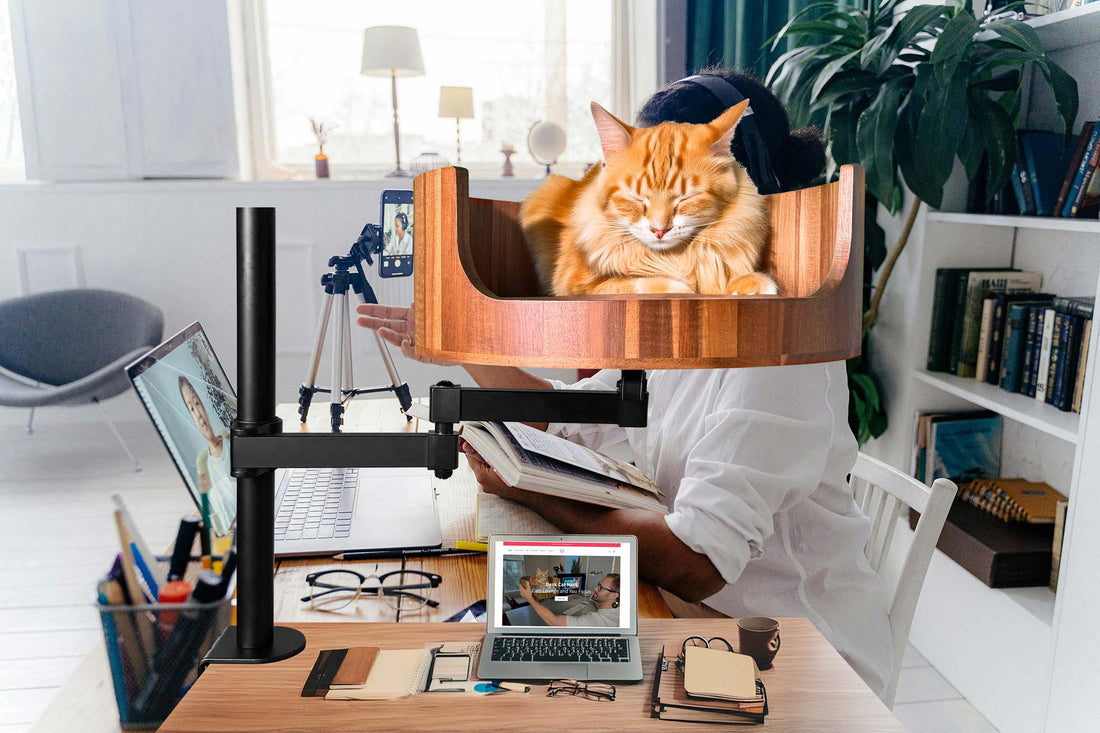
Why My Cat Is Peeing on My Bed: Understanding the Behavior
Share
If you are a cat owner who has ever woken up to the unpleasant surprise of finding your feline friend peeing on your bed, you are not alone. This frustrating behavior can leave pet owners feeling puzzled and frustrated, wondering why their beloved pet is acting out in such a manner. In this article, we will delve into the reasons behind why cats may choose to pee on their owner's bed and what can be done to address this issue.
One of the most common reasons why a cat may start peeing on its owner's bed is due to stress or anxiety. Changes in the household, such as moving to a new home, the addition of a new pet, or even changes in the owner's routine, can all trigger feelings of stress in a cat, leading to inappropriate elimination behaviors. Additionally, medical issues such as urinary tract infections or bladder stones can also lead to a cat urinating outside of the litter box. By understanding the root cause of this behavior, pet owners can take steps to help their feline companion feel more at ease and prevent further incidents of bed-wetting.
1. Cats may pee on your bed due to stress, anxiety, or health issues, so it's important to rule out any medical causes first.
2. Changes in routine, new pets or people in the household, or even a dirty litter box can trigger this behavior in cats.
3. Providing a comfortable and safe space for your cat, like a designated cat nest or hiding spot, can help reduce stress and prevent inappropriate peeing.
4. Behavior modification techniques, such as positive reinforcement and pheromone therapy, can also help address this issue.
5. Consulting with a veterinarian or animal behaviorist is recommended if the behavior persists to determine the underlying cause and develop a suitable treatment plan.
Medical Issues
It is important to rule out any medical issues that could be causing your cat to pee on your bed. Urinary tract infections, bladder stones, diabetes, and kidney disease are common medical conditions that can lead to inappropriate urination in cats. Consult with your veterinarian to determine if your cat's behavior is a result of a medical problem.
Marking Behavior
Cats are territorial animals, and they may mark their territory by urinating on objects such as your bed. This behavior is more common in unneutered male cats, but spayed females can also exhibit marking behavior. Stress, changes in the environment, the presence of other animals, or even something as simple as switching to a new brand of litter can trigger marking behavior in cats.
Litter Box Issues
If your cat is not using the litter box, it may be because they dislike the type of litter, the location of the box, or the cleanliness of the box. Cats are fastidious creatures and prefer a clean, private area to do their business. Make sure the litter box is scooped regularly, placed in a quiet area away from noisy appliances or high foot traffic, and contains litter that your cat likes.
Behavioral Problems
Cats may pee on the bed as a result of behavioral problems such as anxiety, fear, or aggression. Cats are sensitive to changes in their environment and may react by eliminating outside of the litter box. Providing a safe, stress-free environment for your cat, offering plenty of toys and opportunities for exercise, and using positive reinforcement training techniques can help address behavioral issues that contribute to inappropriate urination.
Conclusion
Desk Cat Nest FAQ
Why is my cat peeing on my bed?
There could be several reasons why your cat is peeing on your bed. It could be due to behavioral issues, a medical problem, or stress. Providing a comfortable and safe space for your cat to eliminate, such as a Desk Cat Nest, may help solve this issue.
Will a Desk Cat Nest prevent my cat from peeing on my bed?
While a Desk Cat Nest can help provide a designated area for your cat to eliminate, it may not completely prevent your cat from peeing on your bed. It is important to also address any underlying behavioral or medical issues that may be causing this behavior.
How can I encourage my cat to use the Desk Cat Nest instead of my bed?
One way to encourage your cat to use the Desk Cat Nest is to place their favorite toys or treats inside the nest. You can also try placing their litter box near the nest to help them associate that area with eliminating.
Can multiple cats use the Desk Cat Nest?
Yes, multiple cats can use the Desk Cat Nest. However, it is important to provide enough space and resources for each cat to prevent any potential territorial disputes.
Is the Desk Cat Nest easy to clean?
Yes, the Desk Cat Nest is designed to be easy to clean. The nesting material can be easily removed and washed, and the base of the nest can be wiped down with a damp cloth.
In conclusion, investing in a Desk Cat Bed is a valuable choice for pet owners dealing with cats peeing on their bed. The elevated design provides a sense of security and comfort for your cat, reducing stress and potential marking behavior. Additionally, the easy-to-clean materials make it a convenient option for maintaining a clean and odor-free living space. By providing a designated space for your cat to rest, play, and relax, the Desk Cat Bed can help address the underlying reasons for inappropriate urination, ultimately promoting a harmonious relationship between you and your feline companion.


















































